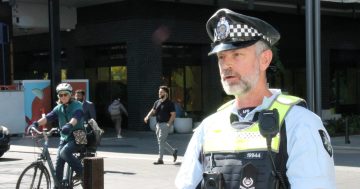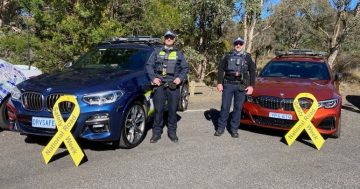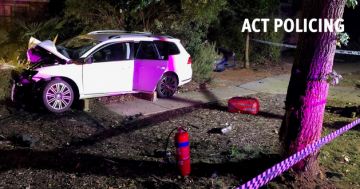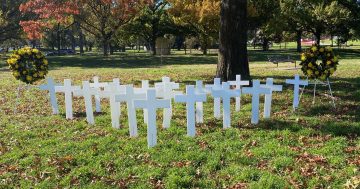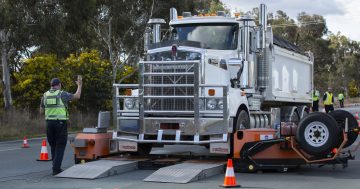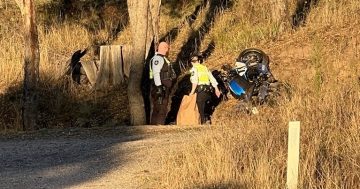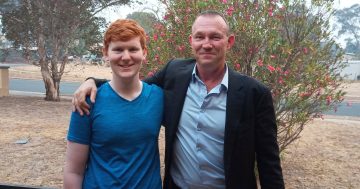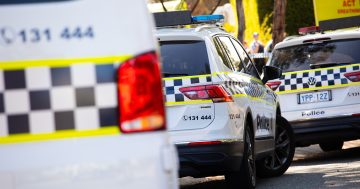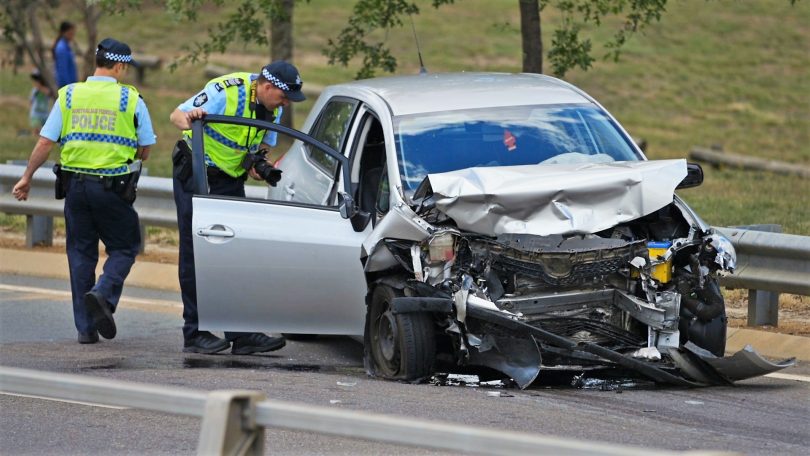
Police officers on the scene of a car accident at Amaroo in 2018. Photo: Region Media.
You don’t hear the noise of metal on metal when cars collide but you will always remember the sound of a wife screaming as her husband lies slumped over the steering wheel.
You don’t get to count the millisecond it takes for a car to crash into another, yet you see moments after play out in slow motion for a lifetime.
But you can hear the heartache in a mother’s voice when she talks of how her 16-year-old daughter’s life was taken away in the blink of an eye, and the reality that the road safety message is simply not sinking in.
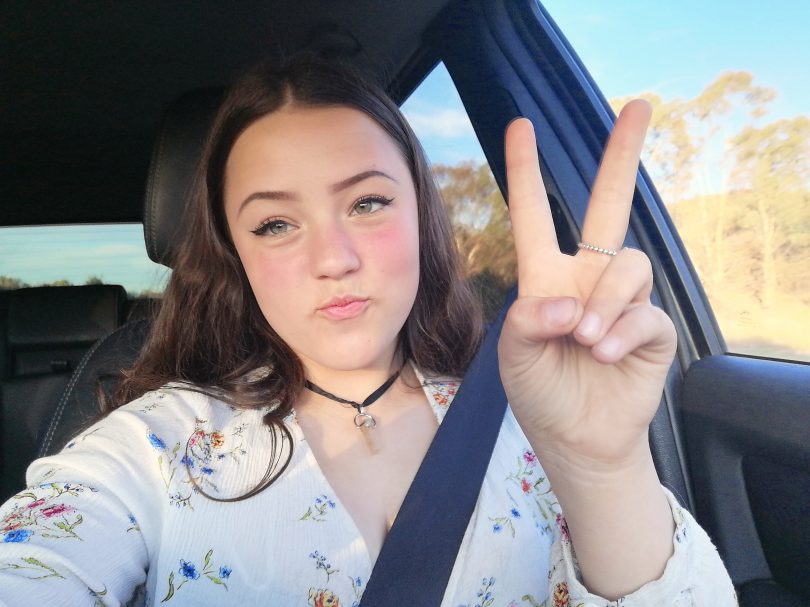
Sixteen-year-old Alexis Saaghy will be remembered as a selfless and compassionate soul. Photo: Supplied.
Sixteen-year-old Alexis Saaghy died in hospital three days after a car she was the front seat passenger in hit a tree in the early hours of Sunday, 31 October.
A gofundme page has been set up in her honour, a legacy for a young life taken too soon. It has raised almost $17,500 for the Blue Datto Foundation, a not-for-profit dedicated to reducing the incidence and impact of road trauma.
Her cousin Alyssa is one of many friends and loved ones to have donated and left a message.
“My baby cousin Alexis left this earth too soon at only 16 years old. Let’s raise awareness on road safety to protect our loved ones and each other from heartbreaking tragedies. Spread the word, spread the love,” Alyssa wrote.
It’s not how Alexis should be remembered.
Alexis’ mother Claire told me last week her daughter was a selfless and compassionate soul.
“She would always share everything she had, even when it meant she wouldn’t have it herself,” Claire said.
She added: “We can’t turn back time to do things over. Please drive safely”.
So how many times do police have to tell people to slow down, to drive safely, or ask ‘who you are rushing to meet?’ which is the catch-phrase of ACT Policing’s latest campaign?
How many times do police need to say they are “frustrated and angry” with reckless drivers?
The majority of us are responsible drivers and sometimes we have an accident. We may dismiss it and say accidents happen and that’s why they are called accidents. This is a common response to your average rear-ender.
I had a car accident when I was 17, but it too was avoidable. They all are.
I had my Ps and the freedom to drive where I wanted. But a day at the beach changed everything when I pulled out of a car park and reached into the glovebox to get my sunglasses. In a heartbeat, I drifted across a country road.
I didn’t see the station wagon coming down the hill, but I saw the face of the driver slumped over the steering wheel. The sound of the horn was deafening as were the screams of the driver’s wife who had frantically exited the passenger’s side.
My father took me to the hospital to visit the family in the days after the accident. The driver, with stitches running the length of his arms, said things I’ll never forget.
The elderly man who sat on the driver’s side of the backseat, also with lots of stitches, took pity and said I would learn a valuable lesson.
He showed some empathy and some words of encouragement to a young and inexperienced driver who learned a valuable lesson about the ripple effect of road trauma.
The consequences extend well beyond emergency services, funeral directors and trauma surgeons who respond when the worlds of others collide in a motor vehicle.
But the real first responders are all of us. Each time we get into a motor vehicle, we respond. Instead of responding badly, we have the opportunity to be responsible, and it only takes a second.












